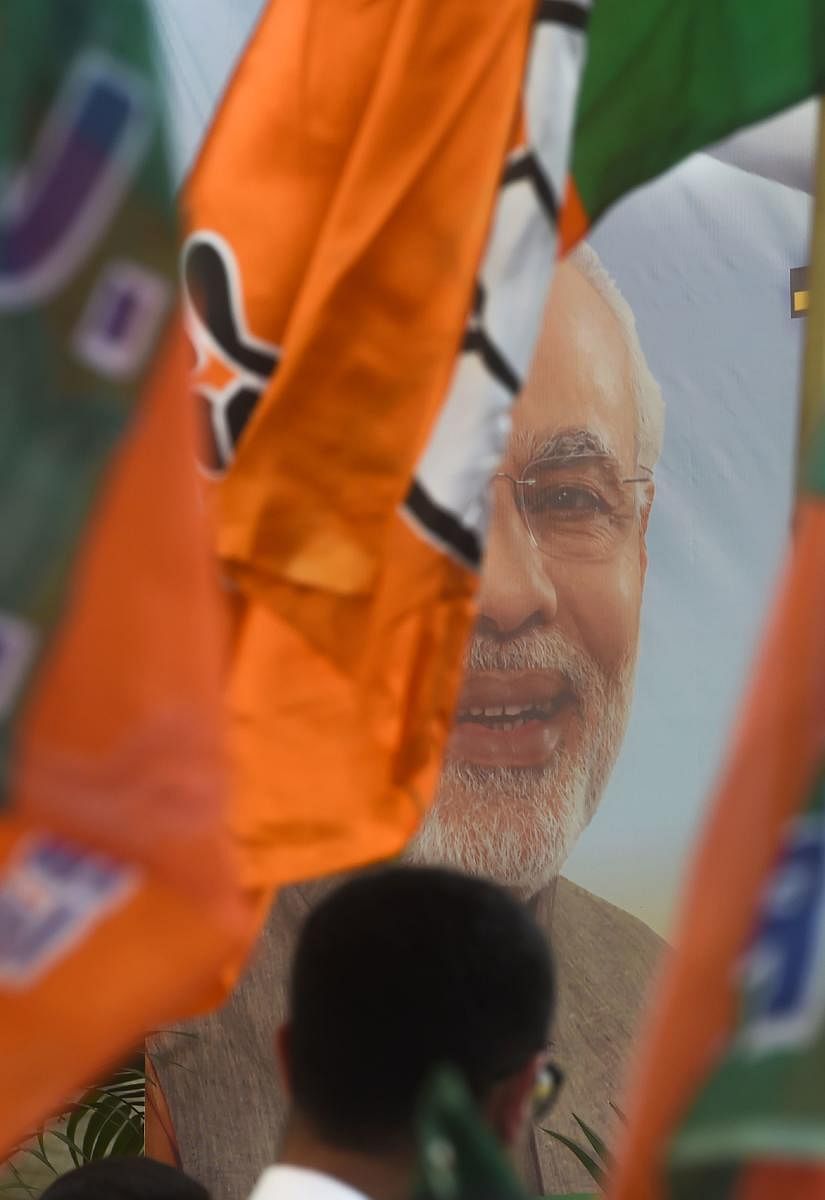
Earlier this month, the Narendra Modi government got passed by parliament the constitutional amendment that will enable a 10% quota in jobs and education for the economically weaker sections in the non-reserved classes. With President Ram Nath Kovind’s assent, it has become law. The existing reservation for SC/ST/OBCs continues; the additional 10% reservation will be given from the 50% unreserved seats and positions in the General Category. This way, the total reservation in government jobs will jump to 60%. It is essential to throw light on some of the problems and concerns arising from this new quota.
This bill has come just three months before Lok Sabha elections. Since the Narendra Modi government has failed to fulfil the promises made during the last general elections, it seems it now aims to woo upper caste voters through this reservation policy. This is the first time that reservation is being provided on the basis of economic criteria.
In the scheme of the framers of our Constitution, reservation was to be provided on the basis of social conditions of caste groups and specifically only to those who had been historically oppressed and denied respect and equal opportunity in Indian society.
Economic criteria would have been included in reservations if the historical discrimination, atrocities and untouchability had happened on economic basis rather than caste basis. That is not the case in Indian society. This quota itself has come at a time when atrocities against Dalits by upper castes are, in fact, once again increasing — from 40,401 cases in 2014 to 40,801 cases in 2016 as the National Crime Records Bureau (NCRB) report of 2016 notes.
Adopting economic criteria for reservation would be justified had the caste system been completely annihilated. Moreover, in the present law, the economic criteria remain undefined and raise several questions. If the government was really worried about the poor in the General Category, it would have brought the law much earlier in its tenure. Why now, just before elections?
The Modi government should understand that reservation is given to those who are excluded from mainstream society due to their caste, not for economic backwardness. The atrocities that continue on the economically forward people of the lower castes shows that social disadvantage does not arise from a person’s economic condition but from his caste, nor does it disappear with one’s economic improvement. The harassment case of Subrahmanyam Saderla, an assistant professor at IIT Kanpur is recent evidence that caste discrimination and disadvantage continues even at our top-rated institutions.
If the government really thinks that reservation should be on the basis of economic criteria, then it should work to eradicate the caste system first. But the harsh reality is that politicians and political parties do not want to eradicate the caste system. After all, it is their ticket to politics and power. Using caste politics, the corrupt, the criminal and the inefficient easily enter politics and gain power whereas the honest, the hardworking, and the educated cannot[c1]. That caste and religion-based parties have the highest number of criminal cases against their ministers and legislators is no accident.[c2]
It’s well-known that most of the reserved seats and jobs in public universities and government offices are deliberately left unfilled, with the excuse, “We did not find any candidate suitable for this post from the reserved category”. The negligible presence of lower caste professors in the IITs and IIMs is an example of this. At present, there is only
one faculty from ST, two from SC, 13 from OBC categories in a total of 642 faculty
members in the IIMs. Clearly, some 98% of positions are already occupied by General Category people at a time when 50% of seats are reserved for SC/ST/OBCs. Similar is the case with other jobs of higher administrative and managerial positions in government offices.
Privatised, contractual jobs
Moreover, increasingly, government jobs are being privatised or offered on contractual basis, where the reservation rules cannot be applied. Here, the lower castes cannot expect to have seats in the private sector or in contractual jobs at a time when they cannot even take the seats that are reserved for them. Now, with the latest amendment, public sector employers will have a free hand to directly recruit General Category people for positions meant for SC/ST/OBC, by giving the excuse that there was no suitable candidate from those categories. This way, reserved posts will now be formally handed over to General Category candidates.
There is no doubt that there are poor among the upper castes, too, but their proportion is minuscule when compared to the poor among the lower castes. The maximum proportion, and absolute numbers, of poor are still amongst the SC and ST categories.
Additionally, the poor of the General Category already have higher chance of moving out of poverty as they do not face any kind of caste atrocity and discrimination. They are also better networked to get jobs as the level of employment is higher among the upper castes and their representation in highly authoritative and managerial positions is higher; lower caste poor face numerous atrocities, discrimination and untouchability while finding a job or working in one; they also do not have the networks that can help them land jobs as their fellow caste people are either unemployed or are employed in low positions in causal and unskilled jobs.
This new 10% reservation for the upper castes will work to further increase the gap and inequality between the lower castes and the upper castes both socially and economically.
(Chakradhar is PhD Research Scholar at Institute for Social and Economic Change, Bengaluru; Bairwa is PhD Research Scholar at IIT Indore)